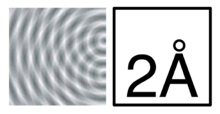500 Words, Day Two
“Intuition is compressed experience”
Without looking up the context of that quotation, I'll offer a corollary that intuition can be embodied experience. How does a surgeon know the best way to stop bleeding as soon as she sees it? Why does some design make us physically recoil?
In my nearly toppling pile of "should read" books (also known as The Tower of Guilt) perilously teeters "Thinking, Fast and Slow" by Daniel Kahneman. The book outlines two systems of thinking in humans. System 1 is rapid and based on feelings or intuition, using association and not logic; System 2 is deliberative and uses logic. The first trusts in magic, for example; the second relies on evidence and calculation. But it's resource-intensive and we avoid making the effort if we at all can. Though it's usually right.
As a kid, I fenced sabre. It began as a fun way to get out of gym class, but eventually I was spending two school nights a week driving to deepest, darkest Hollywood or out to Pasadena for practice and coaching. I wasn't what any objective observer would call good, but it was fun.
But one night, as they say, something changed. My coach came at me with a familiar drill but ramped up the power and the fury of it, until what had seemed fun collaboration began to feel like, well, an attack. He got through more often, he more often blocked my riposte, and he kept coming. He began to yell at me to pick it up, to protect myself.
At that age, an adult's anger was a scary, strange thing, and it was hard not to see this as anger, maybe tinged with disappointment. I didn't know why he was like this. I knew the move. It wasn't my fault that he was faster, better, right?
Then there was the moment. My hand and arm moved faster and more surely than ever before, turning his attack and way and nailing him before he could react. I felt like I hadn't done it; it felt like my nerves and muscles acted in a closed loop, cutting out the overhead of checking with my brain. I hadn't had had the option of second guessing, hadn't had the option of doubt. Coach's barrage had trained into me a single tool, a block of reaction that could be accessed like lightning. And we moved on. And I became what some observers would call good.
This, in a way, is a way of appropriating considered deliberation into experience – intuition. We can train ourselves not to react blindly with System 1; it's our default system, despite it being unsuited for complex issues. But perhaps we can also train ourselves to recognize complex issues and lock in to System 1 more accurate responses that once requires the effort of accessing System 2.
That's how a surgeon can make a split-second call, or a designer to glance and say, "Yeah, you're gonna want to lose the Arial."
And that is 500 words.
